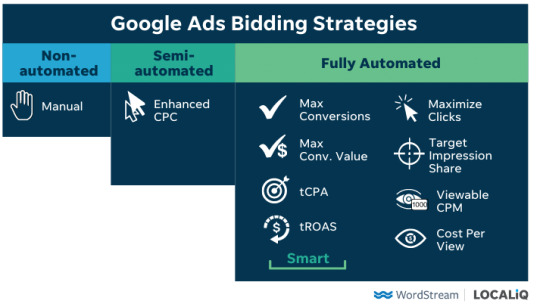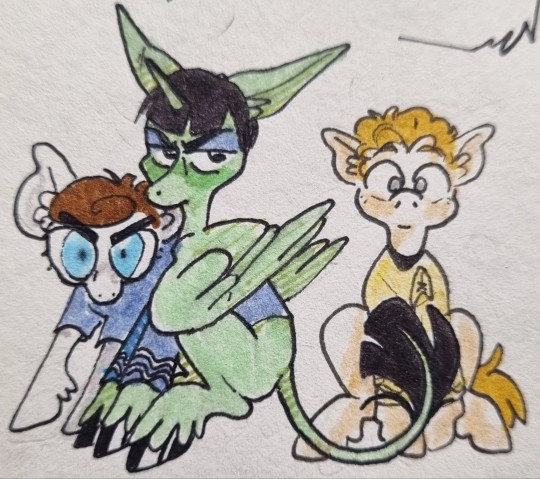#power of google
Text
In light of increasing anti-trans and anti-abortion laws in the United States, I am once again humbly requesting you inform yourself about jury nullification, your ability as a juror to vote against convicting people being prosecuted under unjust laws. Nullification was instrumental in legalizing abortion in Canada - it informed jurors can use it to help protect healthcare workers and protesters in the US, too.
#I am not a lawyer so please do not ask me questions - I will simply google them as you might#but I do care about this so so much#genuinely: read about it. post about it on social media. tell your friends who have jury duty about it#especially those in 'red' states#it can be so powerful#tam.txt#jury nullification#I still want to get embroidered 'research jury nullification' sweatshirts made.....
24K notes
·
View notes
Text
Achieve Advertising Efficiency: Harnessing the Power of Google Ads' Automated Bidding
In today’s fast-paced digital advertising landscape, efficiency is crucial to stay ahead of the competition.
Marketers are constantly seeking innovative ways to optimize their ad campaigns and achieve maximum results with minimal effort. Google Ads’ automated bidding is one such powerful tool that enables advertisers to streamline their bidding process, save time, and drive better…

View On WordPress
0 notes
Text


Atlantica Solana Generating Station - Arizona - USA
🌎
4K links : 1 & 2
#4k#wallpaper#google earth#satellite view#aerial photography#solar panels#power station#arizona#solana#usa#lines#geometry#abstract#texture#pattern#grid#atlas#landscape#desert#industrial#electricity#dji
497 notes
·
View notes
Text
The moral injury of having your work enshittified

This Monday (November 27), I'm appearing at the Toronto Metro Reference Library with Facebook whistleblower Frances Haugen.
On November 29, I'm at NYC's Strand Books with my novel The Lost Cause, a solarpunk tale of hope and danger that Rebecca Solnit called "completely delightful."

This week, I wrote about how the Great Enshittening – in which all the digital services we rely on become unusable, extractive piles of shit – did not result from the decay of the morals of tech company leadership, but rather, from the collapse of the forces that discipline corporate wrongdoing:
https://locusmag.com/2023/11/commentary-by-cory-doctorow-dont-be-evil/
The failure to enforce competition law allowed a few companies to buy out their rivals, or sell goods below cost until their rivals collapsed, or bribe key parts of their supply chain not to allow rivals to participate:
https://www.engadget.com/google-reportedly-pays-apple-36-percent-of-ad-search-revenues-from-safari-191730783.html
The resulting concentration of the tech sector meant that the surviving firms were stupendously wealthy, and cozy enough that they could agree on a common legislative agenda. That regulatory capture has allowed tech companies to violate labor, privacy and consumer protection laws by arguing that the law doesn't apply when you use an app to violate it:
https://pluralistic.net/2023/04/12/algorithmic-wage-discrimination/#fishers-of-men
But the regulatory capture isn't just about preventing regulation: it's also about creating regulation – laws that make it illegal to reverse-engineer, scrape, and otherwise mod, hack or reconfigure existing services to claw back value that has been taken away from users and business customers. This gives rise to Jay Freeman's perfectly named doctrine of "felony contempt of business-model," in which it is illegal to use your own property in ways that anger the shareholders of the company that sold it to you:
https://pluralistic.net/2023/11/09/lead-me-not-into-temptation/#chamberlain
Undisciplined by the threat of competition, regulation, or unilateral modification by users, companies are free to enshittify their products. But what does that actually look like? I say that enshittification is always precipitated by a lost argument.
It starts when someone around a board-room table proposes doing something that's bad for users but good for the company. If the company faces the discipline of competition, regulation or self-help measures, then the workers who are disgusted by this course of action can say, "I think doing this would be gross, and what's more, it's going to make the company poorer," and so they win the argument.
But when you take away that discipline, the argument gets reduced to, "Don't do this because it would make me ashamed to work here, even though it will make the company richer." Money talks, bullshit walks. Let the enshittification begin!
https://pluralistic.net/2023/11/22/who-wins-the-argument/#corporations-are-people-my-friend
But why do workers care at all? That's where phrases like "don't be evil" come into the picture. Until very recently, tech workers participated in one of history's tightest labor markets, in which multiple companies with gigantic war-chests bid on their labor. Even low-level employees routinely fielded calls from recruiters who dangled offers of higher salaries and larger stock grants if they would jump ship for a company's rival.
Employers built "campuses" filled with lavish perks: massages, sports facilities, daycare, gourmet cafeterias. They offered workers generous benefit packages, including exotic health benefits like having your eggs frozen so you could delay fertility while offsetting the risks normally associated with conceiving at a later age.
But all of this was a transparent ruse: the business-case for free meals, gyms, dry-cleaning, catering and massages was to keep workers at their laptops for 10, 12, or even 16 hours per day. That egg-freezing perk wasn't about helping workers plan their families: it was about thumbing the scales in favor of working through your entire twenties and thirties without taking any parental leave.
In other words, tech employers valued their employees as a means to an end: they wanted to get the best geeks on the payroll and then work them like government mules. The perks and pay weren't the result of comradeship between management and labor: they were the result of the discipline of competition for labor.
This wasn't really a secret, of course. Big Tech workers are split into two camps: blue badges (salaried employees) and green badges (contractors). Whenever there is a slack labor market for a specific job or skill, it is converted from a blue badge job to a green badge job. Green badges don't get the food or the massages or the kombucha. They don't get stock or daycare. They don't get to freeze their eggs. They also work long hours, but they are incentivized by the fear of poverty.
Tech giants went to great lengths to shield blue badges from green badges – at some Google campuses, these workforces actually used different entrances and worked in different facilities or on different floors. Sometimes, green badge working hours would be staggered so that the armies of ragged clickworkers would not be lined up to badge in when their social betters swanned off the luxury bus and into their airy adult kindergartens.
But Big Tech worked hard to convince those blue badges that they were truly valued. Companies hosted regular town halls where employees could ask impertinent questions of their CEOs. They maintained freewheeling internal social media sites where techies could rail against corporate foolishness and make Dilbert references.
And they came up with mottoes.
Apple told its employees it was a sound environmental steward that cared about privacy. Apple also deliberately turned old devices into e-waste by shredding them to ensure that they wouldn't be repaired and compete with new devices:
https://pluralistic.net/2023/09/22/vin-locking/#thought-differently
And even as they were blocking Facebook's surveillance tools, they quietly built their own nonconsensual mass surveillance program and lied to customers about it:
https://pluralistic.net/2022/11/14/luxury-surveillance/#liar-liar
Facebook told employees they were on a "mission to connect every person in the world," but instead deliberately sowed discontent among its users and trapped them in silos that meant that anyone who left Facebook lost all their friends:
https://www.eff.org/deeplinks/2021/08/facebooks-secret-war-switching-costs
And Google promised its employees that they would not "be evil" if they worked at Google. For many googlers, that mattered. They wanted to do something good with their lives, and they had a choice about who they would work for. What's more, they did make things that were good. At their high points, Google Maps, Google Mail, and of course, Google Search were incredible.
My own life was totally transformed by Maps: I have very poor spatial sense, need to actually stop and think to tell my right from my left, and I spent more of my life at least a little lost and often very lost. Google Maps is the cognitive prosthesis I needed to become someone who can go anywhere. I'm profoundly grateful to the people who built that service.
There's a name for phenomenon in which you care so much about your job that you endure poor conditions and abuse: it's called "vocational awe," as coined by Fobazi Ettarh:
https://www.inthelibrarywiththeleadpipe.org/2018/vocational-awe/
Ettarh uses the term to apply to traditionally low-waged workers like librarians, teachers and nurses. In our book Chokepoint Capitalism, Rebecca Giblin and I talked about how it applies to artists and other creative workers, too:
https://chokepointcapitalism.com/
But vocational awe is also omnipresent in tech. The grandiose claims to be on a mission to make the world a better place are not just puffery – they're a vital means of motivating workers who can easily quit their jobs and find a new one to put in 16-hour days. The massages and kombucha and egg-freezing are not framed as perks, but as logistical supports, provided so that techies on an important mission can pursue a shared social goal without being distracted by their balky, inconvenient meatsuits.
Steve Jobs was a master of instilling vocational awe. He was full of aphorisms like "we're here to make a dent in the universe, otherwise why even be here?" Or his infamous line to John Sculley, whom he lured away from Pepsi: "Do you want to sell sugar water for the rest of your life or come with me and change the world?"
Vocational awe cuts both ways. If your workforce actually believes in all that high-minded stuff, if they actually sacrifice their health, family lives and self-care to further the mission, they will defend it. That brings me back to enshittification, and the argument: "If we do this bad thing to the product I work on, it will make me hate myself."
The decline in market discipline for large tech companies has been accompanied by a decline in labor discipline, as the market for technical work grew less and less competitive. Since the dotcom collapse, the ability of tech giants to starve new entrants of market oxygen has shrunk techies' dreams.
Tech workers once dreamed of working for a big, unwieldy firm for a few years before setting out on their own to topple it with a startup. Then, the dream shrank: work for that big, clumsy firm for a few years, then do a fake startup that makes a fake product that is acquihired by your old employer, as an incredibly inefficient and roundabout way to get a raise and a bonus.
Then the dream shrank again: work for a big, ugly firm for life, but get those perks, the massages and the kombucha and the stock options and the gourmet cafeteria and the egg-freezing. Then it shrank again: work for Google for a while, but then get laid off along with 12,000 co-workers, just months after the company does a stock buyback that would cover all those salaries for the next 27 years:
https://pluralistic.net/2023/09/10/the-proletarianization-of-tech-workers/
Tech workers' power was fundamentally individual. In a tight labor market, tech workers could personally stand up to their bosses. They got "workplace democracy" by mouthing off at town hall meetings. They didn't have a union, and they thought they didn't need one. Of course, they did need one, because there were limits to individual power, even for the most in-demand workers, especially when it came to ghastly, long-running sexual abuse from high-ranking executives:
https://www.nytimes.com/2018/10/25/technology/google-sexual-harassment-andy-rubin.html
Today, atomized tech workers who are ordered to enshittify the products they take pride in are losing the argument. Workers who put in long hours, missed funerals and school plays and little league games and anniversaries and family vacations are being ordered to flush that sacrifice down the toilet to grind out a few basis points towards a KPI.
It's a form of moral injury, and it's palpable in the first-person accounts of former workers who've exited these large firms or the entire field. The viral "Reflecting on 18 years at Google," written by Ian Hixie, vibrates with it:
https://ln.hixie.ch/?start=1700627373
Hixie describes the sense of mission he brought to his job, the workplace democracy he experienced as employees' views were both solicited and heeded. He describes the positive contributions he was able to make to a commons of technical standards that rippled out beyond Google – and then, he says, "Google's culture eroded":
Decisions went from being made for the benefit of users, to the benefit of Google, to the benefit of whoever was making the decision.
In other words, techies started losing the argument. Layoffs weakened worker power – not just to defend their own interest, but to defend the users interests. Worker power is always about more than workers – think of how the 2019 LA teachers' strike won greenspace for every school, a ban on immigration sweeps of students' parents at the school gates and other community benefits:
https://pluralistic.net/2023/04/23/a-collective-bargain/
Hixie attributes the changes to a change in leadership, but I respectfully disagree. Hixie points to the original shareholder letter from the Google founders, in which they informed investors contemplating their IPO that they were retaining a controlling interest in the company's governance so that they could ignore their shareholders' priorities in favor of a vision of Google as a positive force in the world:
https://abc.xyz/investor/founders-letters/ipo-letter/
Hixie says that the leadership that succeeded the founders lost sight of this vision – but the whole point of that letter is that the founders never fully ceded control to subsequent executive teams. Yes, those executive teams were accountable to the shareholders, but the largest block of voting shares were retained by the founders.
I don't think the enshittification of Google was due to a change in leadership – I think it was due to a change in discipline, the discipline imposed by competition, regulation and the threat of self-help measures. Take ads: when Google had to contend with one-click adblocker installation, it had to constantly balance the risk of making users so fed up that they googled "how do I block ads?" and then never saw another ad ever again.
But once Google seized the majority of the mobile market, it was able to funnel users into apps, and reverse-engineering an app is a felony (felony contempt of business-model) under Section 1201 of the Digital Millennium Copyright Act. An app is just a web-page wrapped in enough IP to make it a crime to install an ad-blocker.
And as Google acquired control over the browser market, it was likewise able to reduce the self-help measures available to browser users who found ads sufficiently obnoxious to trigger googling "how do I block ads?" The apotheosis of this is the yearslong campaign to block adblockers in Chrome, which the company has sworn it will finally do this coming June:
https://www.tumblr.com/tevruden/734352367416410112/you-have-until-june-to-dump-chrome
My contention here is not that Google's enshittification was precipitated by a change in personnel via the promotion of managers who have shitty ideas. Google's enshittification was precipitated by a change in discipline, as the negative consequences of heeding those shitty ideas were abolished thanks to monopoly.
This is bad news for people like me, who rely on services like Google Maps as cognitive prostheses. Elizabeth Laraki, one of the original Google Maps designers, has published a scorching critique of the latest GMaps design:
https://twitter.com/elizlaraki/status/1727351922254852182
Laraki calls out numerous enshittificatory design-choices that have left Maps screens covered in "crud" – multiple revenue-maximizing elements that come at the expense of usability, shifting value from users to Google.
What Laraki doesn't say is that these UI elements are auctioned off to merchants, which means that the business that gives Google the most money gets the greatest prominence in Maps, even if it's not the best merchant. That's a recurring motif in enshittified tech platforms, most notoriously Amazon, which makes $31b/year auctioning off top search placement to companies whose products aren't relevant enough to your query to command that position on their own:
https://pluralistic.net/2023/04/25/greedflation/#commissar-bezos
Enshittification begets enshittification. To succeed on Amazon, you must divert funds from product quality to auction placement, which means that the top results are the worst products:
https://pluralistic.net/2023/11/06/attention-rents/#consumer-welfare-queens
The exception is searches for Apple products: Apple and Amazon have a cozy arrangement that means that searches for Apple products are a timewarp back to the pre-enshittification Amazon, when the company worried enough about losing your business to heed the employees who objected to sacrificing search quality as part of a merchant extortion racket:
https://www.businessinsider.com/amazon-gives-apple-special-treatment-while-others-suffer-junk-ads-2023-11
Not every tech worker is a tech bro, in other words. Many workers care deeply about making your life better. But the microeconomics of the boardroom in a monopolized tech sector rewards the worst people and continuously promotes them. Forget the Peter Principle: tech is ruled by the Sam Principle.
As OpenAI went through four CEOs in a single week, lots of commentators remarked on Sam Altman's rise and fall and rise, but I only found one commentator who really had Altman's number. Writing in Today in Tabs, Rusty Foster nailed Altman to the wall:
https://www.todayintabs.com/p/defective-accelerationism
Altman's history goes like this: first, he founded a useless startup that raised $30m, only to be acquired and shuttered. Then Altman got a job running Y Combinator, where he somehow failed at taking huge tranches of equity from "every Stanford dropout with an idea for software to replace something Mommy used to do." After that, he founded OpenAI, a company that he claims to believe presents an existential risk to the entire human risk – which he structured so incompetently that he was then forced out of it.
His reward for this string of farcical, mounting failures? He was put back in charge of the company he mis-structured despite his claimed belief that it will destroy the human race if not properly managed.
Altman's been around for a long time. He founded his startup in 2005. There've always been Sams – of both the Bankman-Fried varietal and the Altman genus – in tech. But they didn't get to run amok. They were disciplined by their competitors, regulators, users and workers. The collapse of competition led to an across-the-board collapse in all of those forms of discipline, revealing the executives for the mediocre sociopaths they always were, and exposing tech workers' vocational awe for the shabby trick it was from the start.

If you'd like an essay-formatted version of this post to read or share, here's a link to it on pluralistic.net, my surveillance-free, ad-free, tracker-free blog:
https://pluralistic.net/2023/11/25/moral-injury/#enshittification
#pluralistic#moral injury#enshittification#worker power#google#dont be evil#monopoly#sam altman#openai#vocational awe#making a dent in the universe
557 notes
·
View notes
Text
Vaggie: Alastor can you watch the eggs their being....eggs and I have to- just take them off my hands
Alastor: ooo i certainly will....
Vaggie:.....in a peaceful manner. Alastor.
Alastor: mmm well that's less fun, also why should I watch them?
Vaggie: well you're going to some meeting and I have to help charlie-
Alastor: didn't she excuse you from your duties for today?
Vaggie:...why would she- why would I ask for that??
Alastor: why, you have to come to this meeting to my dear!
Vaggie: no I dont?? It's an overlord meeting I'm not an overlord-
Alastor: but you are!
Vaggie: if anything charlie should probably be going with you rather then me- what what??
Alastor: I'll explain on the way! *just fucking leaves*
Vaggie: wha- alastor! Alastor I swear to the lord you better explain!
Alastor: hmmm, well you're an overlord my dear I don't think there's anything else TO explain
Vaggie: right...but I'm NOT an overlord??
Alastor: I beg to differ, I knew there was something off about you but couldn't place it until Charlie said something
Vaggie: Charlie- what does- okay you know what? You're insane. I'm going to go talk to Charlie myself!
Alastor grabs her shirt collar like a kitten: ah-ah-ah you have a meeting to attend my dear! It's be bad manners if you skipped it, whoch I suppose you've been skipping them for the past 5 or so years?
Vaggie: No, I haven't! and let go of my you asshole!
Alastor: hmmm no I don't think I will~ come on now! We're already half way there!
Vaggie: ugh, at least tell me how you and xharlie think I'm an overlord- which I'm NOT by the way!
Alastor: well...do you remember that sinner you saved? The one you had a slat with and ended uo teaching self defense?
Vaggie: how do you-....ah, charlie- what does that have to do with anything??
Alastor radio noise of displeasure: well, APPARENTLY they told more demons, you DO remember the large influx of demons who came to you right?
Vaggie: I.....I um....yeah....
Alastor: well they said they owed you 'favors' correct?
Vaggie:....fuck.
Alastor: they gave you their souls until said favor is called upon! You not using it has apparently given you the reputation of a very lenient overlord, a defensive and protective one at that! So more people cane to you, you trianed them in defense and most gave you their souls so you could call upon them for a favor at a time of your choosing!
Vaggie: going through the 5 stages of grief trying to process it all
Alastor: On top of that, the other overlords seem to be threatened by the fact you have so many souls and demons going to you WILLINGLY, you not showing up to meetings and beong little morningstars girlfriend doesnt help that either!So this will be a fun first meeting~
Vaggie: no no no no no nope! Alastor, you let me go right this second! I am not- no! Alastor! Alastor!!!
Zestial: Alastor and...oh the defensive Overlord nice to meet you again nd to finally meet you
Vaggie: ¿¡Quién diablos es esta araña joder!? (Who the hell is this spider fuck!?)
Part 1 | Part 2(here!!) | Part 3
#hazbin hotel#hazbin hotel au#hazbin hotel vaggie#hazbin hotel charlie#hazbin hotel alastor#chaggie#accidental overlord vaggie au#i feel like Al would be pissed at vaggie knowing charlie told him#he lieks to seem mroe powerful/high and mighty and he cant bw that if she knows he gets info form other people#hes very smug at Vaggies panic though#charlie meanwhile already misses her girlfriend#Nifty throwing herself off the roof doesnt help#hazbin hotel overlord#the egg boizs are having a grand old time though#i used google translate for the Spanish part im sorry if its wrong-#i wanted vaggie to say “who the hell is this spider fuck!?” but everytime i tried it always ended up as something different#i tried for like 1p minutes#i THINK i got it down but im not sure if the '!?' changes any words/symbols#translator says it does but im not 100% how right it is so- if its not that then its 'who the hell is this fucking spider' which still work#not to important i guess lol#diablos actually mgiht mean devil and inferno hell but uh....its- its fine#any spanish speakers feel free to correct me😅
220 notes
·
View notes
Text
I’ve been highly confused as to why Michael “deeply openly thirsting on Twitter about David Tennant for half a decade” Sheen is half-in half-out the closet but apparently Wales is absurdly homophobic lmao what the fuck how is a country the size of New Jersey that much of a hater bruh we out number the shit out of you
#i thought googling ‘how to say gay’ in welsh would be funny but it just made me sad#i knew the uk in general had a problem with trans people but WOW it’s fucked up in wales like. there are 8 of you what are you doing#i feel bad now lmao#wales#my weird welsh hyperfixation has taken me places let me tell you#cymru#homophobia#gay#lgbt#lgbtqia#good omens#bbc staged#michael sheen#i thought he was just ‘oh i’m quiet about my personal life’ but that’s not even true like my man’s probably actually scared#what a fuckass country lmao awesome#uk politics#united kingdom#david tennant#what is it with this tiny ass island taking over the world and being shitty lmao and this is coming from an american#bisexual#<- bisexual gang gang feel bad you fuckin haters lol#yes the whole world is homophobic i know etc but it’s like outrageously bad out there apparently#stay mad that i think nationalism is dumb ‘how dare you ever have an opinion you american’#you’re white you are not going to like where the power + privilege argument inevitably goes
234 notes
·
View notes
Text

The idea of shadows being a separate soul in One Piece is interesting because, as we later find out with Big Mom, souls in the traditional sense do exist and associated with a person's life energy, whereas shadows house the personality. The idea of the shadow being related to the soul isn't exactly unique to One Piece--it's a popular trope in fairy tales and made most famous by Peter Pan--but here they're totally separate things that seem to have different functions.
Also, tattoo alert.
#opbackgrounds#one piece#ch455#I google the strangest things for this blog#powers and abilities#tattoo
175 notes
·
View notes
Text
You're carrying tracking devices and iPhones are no different. Leave it at home if you don't want to be tracked and tagged. 🤔
#pay attention#educate yourselves#educate yourself#knowledge is power#reeducate yourself#reeducate yourselves#think about it#think for yourselves#think for yourself#do your homework#do some research#do your own research#ask yourself questions#question everything#phone addiction#tracking device#phones#google#apple#you decide#government corruption#nsa#crimes against humanity
144 notes
·
View notes
Text
wish house was a real doctor so i could be his mystery insomniac patient and after giving me horse tranquilizers and still not falling asleep he just hits me in the head with his cane and im out like a light
#house md#i was supposed yo be asleep 2 hrs ago cause i planned to get up very early to study but LMAO NO#as soon as i shut my eyes my chest felt like it was being ripped to shreds from anxiety. i love i love it i love it (←says guy who hates it#anyways. i got mad i cried i googled some things frantically and now im in an acceptance phase of 'it is what it is' ¯\_(ツ)_/¯#i think the thing that makes me the most frustrated is that. i slept like shit last night. like 4hrs maybe!!!! total!!! and so by the time#i started studying today around 6:30 i was eepy. and then by 7:15 my eyes were sooo heavy so i decided to take a 15 min power nap#and i was DREAMING within minutes. i fell asleep that quick. such a deep sleep that my alarm scared me awake#but ofc when im like oh teehee ill go to bet hella early and wake up hella early my brain is like ? no.#if youre still reading. idk im kissing you on the mouth or something. thanks for being here 🫶#gonna start tagging these posts as#insomnia chronicles
319 notes
·
View notes
Text
Ed looking at Olu (charismatic, intelligent, natural leader who was ready to strap a guy to an anchor and let him work it out with the ocean 5 seconds after becoming captain) and Jim (short, angry, no social skills whatsoever but brilliant at stabbing people) and just sighing like "you guys are just like me and Iz when were young..."
and Jim and Olu being HORRIFIED
#ed crying into his pillow like where did it all go wrong babe#meanwhile jim on pirate google desperately searching for 'how to prevent your sweet romance turning into co dependent cringe fail marriage'#olu knows they have the power of communication and not overheating in leather on their side so he's not worried#jimolu#edizzy#blackhands#tealoranges
776 notes
·
View notes
Text

The triumvirate.
Also no, I don't think I can draw Bones looking normal. His eyes have to be that big sorry.
#I keep forgetting to color tge stripes on Spock's sleeves#also. triumvirate: 'a group of three men holding power' (#i googled it#trust me#star trek#star trek tos#star trek the original series#spock#s'chn t'gai spock#jim kirk#james t kirk#kirk#captain kirk#leonard mccoy#bones mccoy#doctor mccoy#spirk#mcspirk#whatever you want it to be I guess#mlp#my little pony#sponie#i love them#fanart#art#traditional art#mcpones#my new tag for pony Mccoy
115 notes
·
View notes
Text
An incredible thing about tumblr is that if you've been here long enough and can't figure out how to do something, you just assume it's broken because hey, it's tumblr.
Yet the instant you complain about it, someone comes along and goes "I've been able to do this the whole time???"
Anyway, I've finally figured out how to find my Likes on tumblr mobile, yes that feature has always been there. Don't ask me how long I've been on this website, I refuse to check.
#off topic#this has been the bane of my existence and somehow I never thought to google it#anyway it's now over for you queue I have all the power
87 notes
·
View notes
Text
Ok I'm trying to catch up with tcf in between assignments because I'm so far behind T-T
And I'm on chapter 250 now (yes I'm that far behind and I'm not making any progress unfortunately, blame my interior design course for that)

Cale + Sky Eating Water are always such a chaotic comedy duo like the moment Cale starts using Sky Eating Water all the braincells just evaporate. I love them your honor
#just to let everyone know: THESE ARE THE KOREAN RAWS ON KAKAOPAGE AND I JUST USED THE TRANSLATE PAGE OPTION ON GOOGLE#tcf#trash of the count's family#lcf#lout of the count’s family#tcf novel#cale henituse#sky eating watr#tcf ancient powers#tcf part 2#laws of hunting
59 notes
·
View notes
Text
reorganizing/cleaning out my notes app i might share some good ones i've found. such as this one for instance

#text#i did not in fact google either of these rhings when my power was back#no clue why i wanted to google either of these things
62 notes
·
View notes
Text
Catra: Okay, what's going on? You, Hordak, and Entrapta have been REALLY weird around each other lately. Did something happen?
Adora: I can tell you, but I can't UN-tell you.
Catra: Is it really that bad?
Adora: Entrapta needed me to heal Hordak, she accidentally broke his... baculum.
Catra: His baculum? I don't know what that is.
Adora: Lucky.
#she ra and the princesses of power#she ra#spop#catra#adora#catradora#entrapta#hordak#entrapdak#not safe for frosta#you'll know why once you google it
43 notes
·
View notes
Text

lann and daeran should kiss
#i think as i read the tenth banter bit they have#remembering the power that lies at my fingertips#pathfinder#pwotr#scribbles#midjourney has my name in its algorithm even though they meant to scalp from an mtg artist w my exact first and last name#but my art pops up in google if you look up my name#scalp this image motherfuckers
75 notes
·
View notes